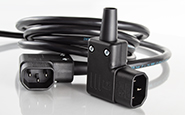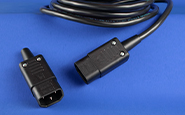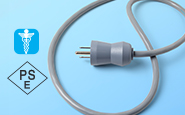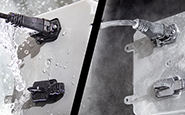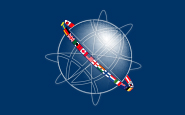Interpower’s Answers to Commonly Asked Questions—International Cable
 At the Interpower Group of Companies, we have real people answering the phones. No recorded messages. As a result, we receive a number of interesting product design questions. Usually if a question has been asked by one person, it means that others also have the same question. So to assist you, we have been sharing a few of the commonly asked questions, complete with answers. This is the last question in our series, “Interpower’s Answers to Commonly Asked Questions.”
At the Interpower Group of Companies, we have real people answering the phones. No recorded messages. As a result, we receive a number of interesting product design questions. Usually if a question has been asked by one person, it means that others also have the same question. So to assist you, we have been sharing a few of the commonly asked questions, complete with answers. This is the last question in our series, “Interpower’s Answers to Commonly Asked Questions.”
Question:
What is international cable?
Answer:
Dan Ford, Technical Support Specialist at Interpower, explains what international cable is. “International cable needs to be manufactured in accordance with EN (European Norm) 50525 cable standards. These are European standards accepted by member countries of CENELEC (European Committee for Electrotechnical Standardization), an organization which has agreed upon formalized methods of construction and testing for common products,” he said.
Manufacturers from countries outside of the CENELEC group can be awarded approval to make international cable. They need to have approvals from at least one of the European testing agencies in accordance with the EN 50525 standards. “When listing a cable type, e.g. H05VV-F, the ‘H’ means it meets the harmonized cable standard (EN 50525), except that it is manufactured outside the CENELEC group of countries,” he said.
Some international cable carries a special marking—the <HAR> mark—but not all international cable does. Ford explained, “Depending on where the cable manufacturer is located, determines whether the <HAR> mark can be put on the cable itself. The <HAR> mark is a common marking that can only be used on cable manufactured by signatory members of CENELEC.”
International cable needs to be manufactured in accordance with the IEC (International Electrotechnical Commission) cable standards, such as IEC 60227, and may also need to follow other country-specific cable standards as well, depending on the country the cable will be used in. “International cable (depending on approvals) can be used in Europe and in other countries throughout the world—except in North America,” he added.
If you have questions, Interpower offers free technical support. You can check the website at www.interpower.com, e-mail sales@interpower.com (United States) or uk@interpower.com (United Kingdom) or contact Customer Service in the United States at (800) 662-2290 or in the United Kingdom at +44 (0)1908 295300.
If you have ideas for future InfoPower blogs, please e-mail infopower@interpower.com.
Rev. 10/30/15


